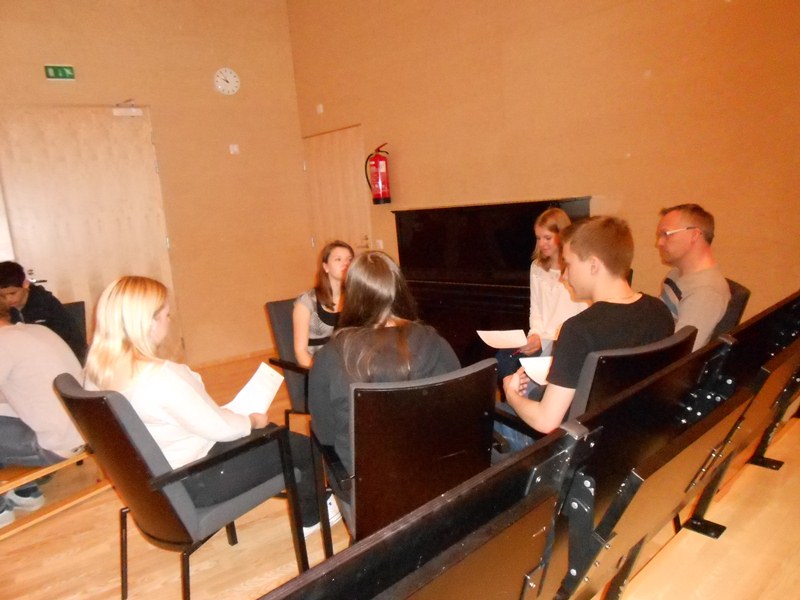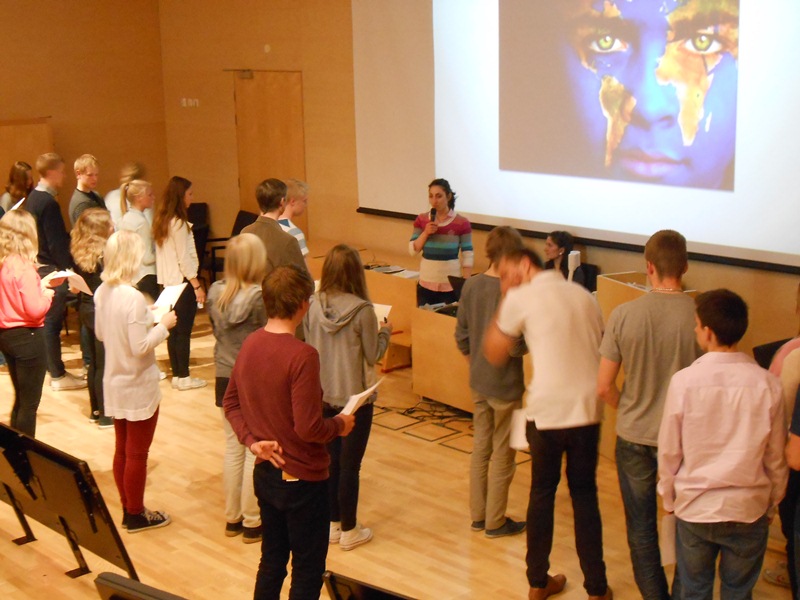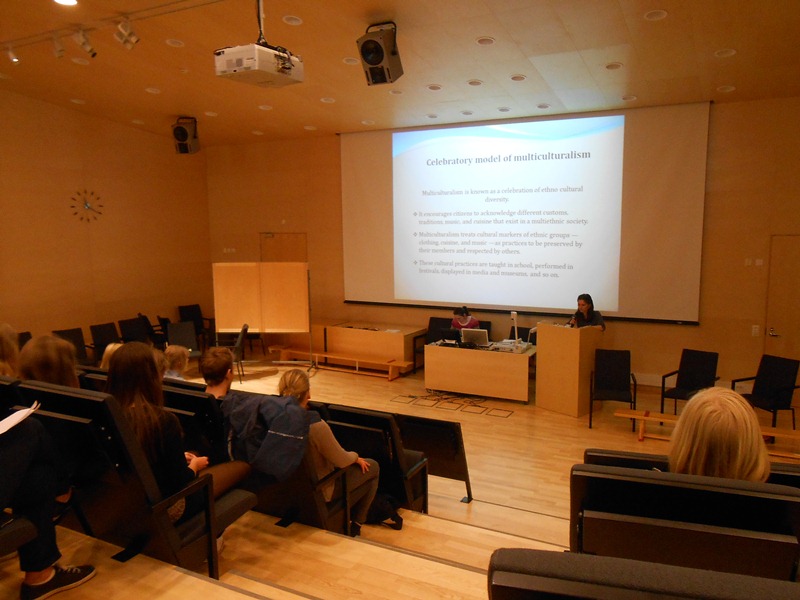One of the workshops was held by two volunteers from the Åland Islands Peace Institute. It was divided into two parts.
In the first part Gulnar Mammadova made a presentation on understanding multiculturalism. She spoke about the main models of it;
- Celebratory model of multiculturalism which encourages citizens to acknowledge different customs, traditions, music, and cuisine that exist in a multiethnic society as practices to be preserved by their members and respected by others.
- Democratic citizenship model of multiculturalism as a model of democratic citizenship grounded in human-rights ideals and aimed to replace earlier uncivil and undemocratic relations of hierarchy and exclusion.
- Human rights measure of multiculturalism as part of a larger human-rights revolution involving ethnic and racial diversity. Its main ideology is the equality of races and peoples turning the earlier catalog of hierarchical relations into relationships of liberal-democratic citizenship.
A group discussion followed the presentation. The students were asked questions to think about and share ideas; such as what their opinion was about multiculturalism on Åland, whether people with other backgrounds were treated equally and enjoyed the same rights and freedoms, what their personal requirements were for an immigrant to be selected to the Parliament or run the Government on Åland, etc. 
In their answers the participants were quite confident about respectful multicultural coexistence on Åland Islands and they experienced the same attitude from the new comers. The main requirements were the knowledge of language, local laws and history, the respect of others rights and freedoms as well as equal responsibilities and obligations for the community.
The second part of the workshop was held by Gohar Mamikonyan, it was a practical “role game” called “lägenhet”(apartment). The participants were divided into four groups, six persons in each. They were provided a list of imaginary persons and asked to choose three persons with whom they would like to live in the same apartment and three with whom they definitely would not like to live under the same roof.
After the groups decided and had the answers each of them was assigned to take one “role” and think about the person regardless whether they preferred to share the apartment with or not.
They were asked to stand in a line side by side and every time to take a step forward if the answer to the following questions would be positive. The questions were as; whether they thought they were loved and respected in the society or not, if their voice was heard and taken into consideration, whether they had an equal access to primary, secondary and higher education, etc.
 In the end the whole picture in the class with the imaginary roles were quite diversified. Some of them took all the steps while others were limited in the opportunities in the same community, living side by side but being treated differently.
In the end the whole picture in the class with the imaginary roles were quite diversified. Some of them took all the steps while others were limited in the opportunities in the same community, living side by side but being treated differently.
However, in the discussions they mentioned that it was very hard to think and feel in the shoes of others and make decisions for them.
As a conclusion, dialogue between cultures requires a great deal of time and experience. The development of multicultural approaches depends not only on people’s openness, but also on politicians, who have to implement a whole series of measures to facilitate the process.



